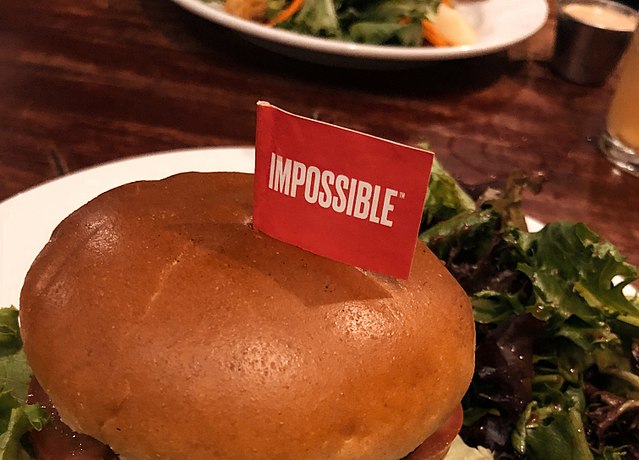Davos was meatless yesterday. It probably wasn’t entirely a gimmick

My recent Swissair flight to Jerusalem served three kinds of meals: vegetarian, kosher and Hindu. The last two needed to be ordered ahead. If you didn’t, you got the standard meal, which was vegetarian. (So were the kosher and Hindu meals, which were only distinct in the special method of preparation or the distinct spices.)
So essentially, Swissair operated a totally vegetarian operation from London to Jerusalem. It’s a reminder of the hold that vegetarianism is taking in the West. And veganism, even more so.
Are we at peak meat?
With imitation-meat burgers and sausages, fish-free tuna, vegan sea urchin, meatless chicken and “eggs” made from mung bean protein, canola oil, onion puree and turmeric, plant-based foods that look and smell like the animal product they mimic are becoming one of the world’s biggest trends.
By some estimates, the plant-based food market will be worth as much as $140 billion in 10 years.
That’s the context of the self-conscious eco-morality on display at Davos with Wednesday (Jan. 22) decreed vegetarian and alternative-protein-sources day as part of the World Economic Forum’s sustainability push.
Interestingly, the plant-based food industry is not targeting committed vegans or vegetarians but an entirely different group of consumers – the flexitarians. They shift at random between omnivorous and vegetarian diets but seem to want to eat less meat and dairy, as long as the food on their plate tastes just as good.
Like swing voters, flexitarians are appreciative of attention.

